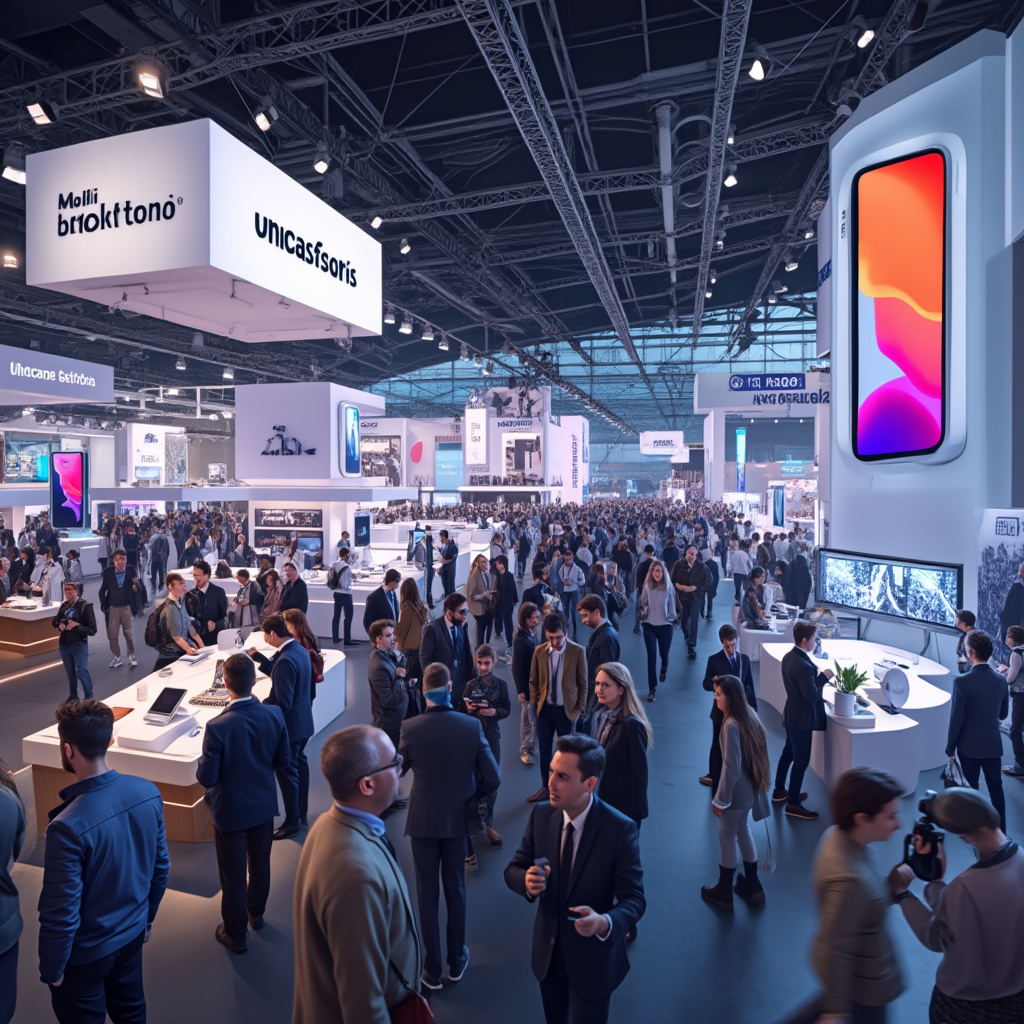Barcelona once again became the epicenter of the mobile technology world during the Mobile World Congress 2025. This year’s event, which took place in March, offered a spectacular glimpse into the future of connectivity, presenting a dazzling array of innovations from both established companies and emerging start-ups. Known for its history of showcasing cutting-edge technology, MWC has always been a platform where tech giants like Samsung, Huawei, and Apple unveil their latest products alongside budding enterprises eager to disrupt the status quo.
One of the standout themes of MWC 2025 was the ubiquitous integration of Artificial Intelligence (AI) in mobile technology. From AI-enhanced cameras that can take professional-grade photographs with a simple smartphone to virtual assistants capable of holding natural conversations, the advancements in this arena were nothing short of remarkable. Dr. Emily Chang, a renowned AI specialist, remarked, ‘The integration of AI into mobile devices is creating an era where technology becomes an extension of the human capability. It is not just about doing things better; it’s about doing things differently.’
The smartphone industry, as expected, took center stage with some groundbreaking announcements. Samsung introduced its Galaxy ZR, which features a foldable display that is not only more durable but also supports seamless multitasking capabilities. Apple’s contribution to MWC was the highly anticipated iPhone 16 Pro, which premiered with a completely portless design, relying entirely on wireless charging and data transfer, a feature that has sparked both intrigue and skepticism among consumers.
Away from traditional smartphone features, manufacturers are increasingly focusing on sustainability, exploring how mobile devices can be made more eco-friendly. Notably, Fairphone and other like-minded companies received significant attention with their modular phones designed to reduce electronic waste. By allowing users to easily replace parts, these companies are leading a movement towards more sustainable consumption. The growing interest in environmentally-conscious technology reflects a significant shift in consumer mentality and industry priorities.
5G technology, an innovation that has dominated conversations in recent years, continues to evolve with the promise of 6G lingering on the horizon. While 5G continues to roll out across more regions globally, providing faster and more reliable connectivity, the MWC discussed the steps needed for a 6G future. Experts predict that by 2030, 6G could revolutionize communication entirely with unimaginable bandwidth and latency improvements, paving the way for truly smart cities, autonomous transport systems, and more.
Virtual Reality and Augmented Reality also held the limelight at MWC as they showcased applications beyond gaming and entertainment. With VR headsets becoming lighter and more comfortable, and AR applications assisting in fields such as architecture and healthcare, this technology is showing potential to transform how we interact with the world. Google’s latest AR glasses, designed to blend seamlessly into everyday wear, droves interest from those keen on the interplay of fashion and function.
The MWC also provided a platform for discussions on the critical aspect of data privacy in the ever-connected world. As devices become more integrated into daily lives, the concern for personal data security becomes paramount. Panel discussions stressed the need for stronger regulatory frameworks and advanced encryption technologies to protect consumer information. Cybersecurity expert, Raj Patel, stated, ‘The appetite for data by tech companies must be met with equally rigorous measures to protect user privacy and freedom.’
Amidst the technological advancements, human interaction and collaboration remained at the heart of MWC 2025. It played host to numerous networking opportunities, panel discussions, and workshops where delegates shared insights and forged partnerships. The emphasis on community and collaboration is echoed by industry leaders like Elon Musk, who famously tweeted during the event, ‘Innovation happens when we learn from each other as much as from our own experiences.’
The Mobile World Congress 2025 also highlighted several startups that are poised to shape the future of technology. Companies like Kinaptic, developing context-aware interfaces, and EnerJar, pioneers in efficient battery technologies, were among those that captured the spectators’ imaginations. These startups represent an exciting frontier of innovation, promising solutions to longstanding issues within the tech industry and broader world.
Ultimately, the Mobile World Congress in Barcelona serves as a vital barometer for the tech industry, providing insights into current trends and future directions. It symbolizes a convergence of minds determined to push the boundaries of what is possible, ensuring that while technology continues to evolve rapidly, humanity remains at its core. As we look forward to the next edition, it is clear that the MWC is more than just a trade show; it is a catalyst for change, inspiring technological breakthroughs that will shape the lives of generations to come.

